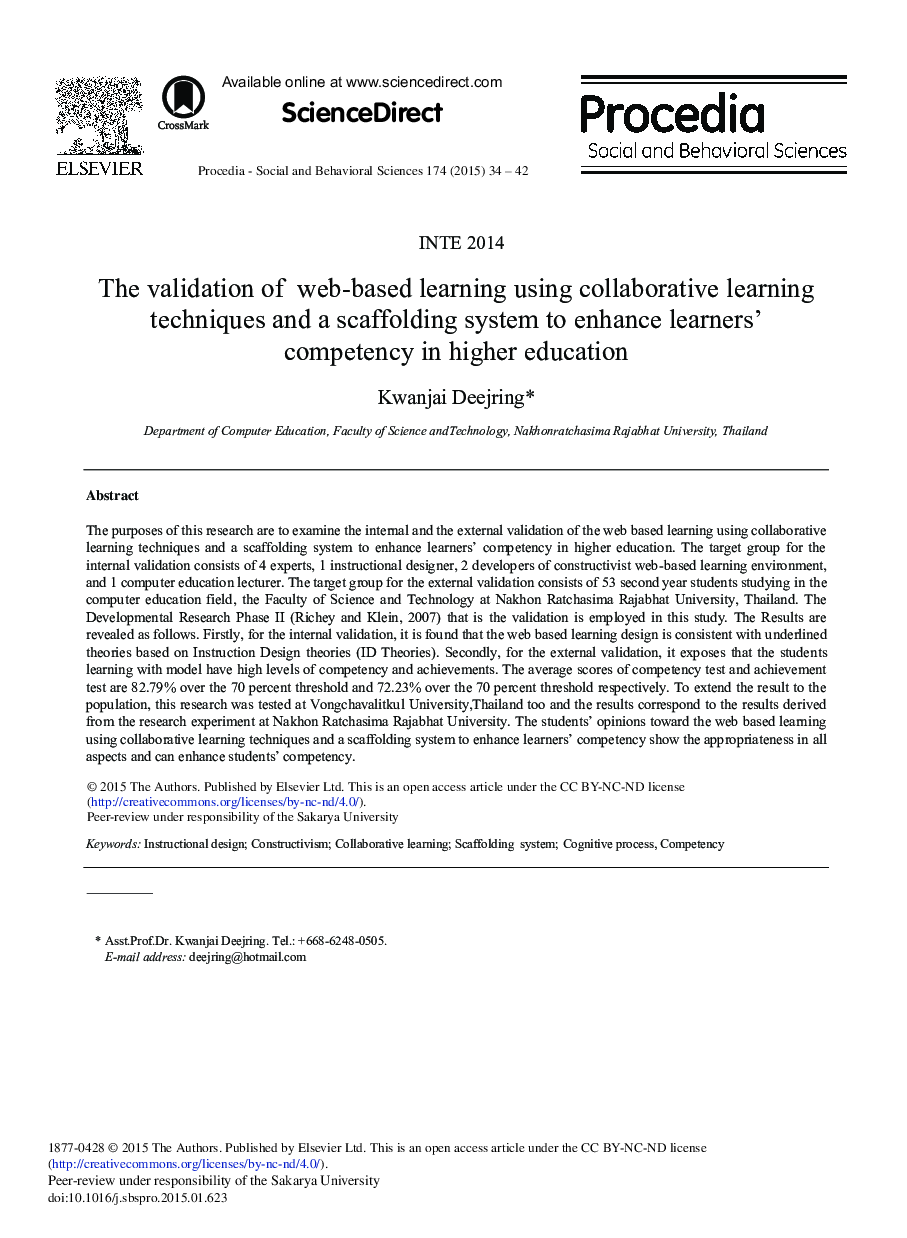| Article ID | Journal | Published Year | Pages | File Type |
|---|---|---|---|---|
| 1111199 | Procedia - Social and Behavioral Sciences | 2015 | 9 Pages |
The purposes of this research are to examine the internal and the external validation of the web based learning using collaborative learning techniques and a scaffolding system to enhance learners’ competency in higher education. The target group for the internal validation consists of 4 experts, 1 instructional designer, 2 developers of constructivist web-based learning environment, and 1 computer education lecturer. The target group for the external validation consists of 53 second year students studying in the computer education field, the Faculty of Science and Technology at Nakhon Ratchasima Rajabhat University, Thailand. The Developmental Research Phase II (Richey and Klein, 2007) that is the validation is employed in this study. The Results are revealed as follows. Firstly, for the internal validation, it is found that the web based learning design is consistent with underlined theories based on Instruction Design theories (ID Theories). Secondly, for the external validation, it exposes that the students learning with model have high levels of competency and achievements. The average scores of competency test and achievement test are 82.79% over the 70 percent threshold and 72.23% over the 70 percent threshold respectively. To extend the result to the population, this research was tested at Vongchavalitkul University,Thailand too and the results correspond to the results derived from the research experiment at Nakhon Ratchasima Rajabhat University. The students’ opinions toward the web based learning using collaborative learning techniques and a scaffolding system to enhance learners’ competency show the appropriateness in all aspects and can enhance students’ competency.
